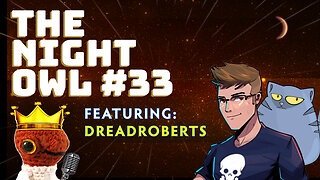10 Common Mental Illnesses Crash Course
Mental illness or mental disorder is a broad term that encompasses various conditions that affect how a person thinks, feels, behaves, and relates to others. Mental illnesses can interfere with a person’s ability to function normally in their daily life, and can cause significant distress and suffering.
Some of the most common mental illnesses are depression and anxiety disorders, which affect millions of people worldwide. However, there are many other types of mental illnesses that are less well-known, but equally serious and challenging. In this video, we will explore 10 of these mental illnesses in more detail, and explain their causes, symptoms, diagnosis, and treatment options. These are:
Anxiety disorders: These are characterized by excessive fear, nervousness, or worry that is out of proportion to the situation and affects a person’s ability to cope. There are different types of anxiety disorders, such as generalized anxiety disorder, panic disorder, social anxiety disorder, phobias, and obsessive-compulsive disorder.
Personality disorders: These are enduring patterns of thinking, feeling, and behaving that deviate from the norms of one’s culture and cause significant problems in relationships, work, or other aspects of life. There are different types of personality disorders, such as borderline personality disorder, narcissistic personality disorder, antisocial personality disorder, and avoidant personality disorder.
Attention deficit hyperactivity disorder (ADHD): This is a neurodevelopmental disorder that affects a person’s ability to pay attention, control impulses, and regulate their activity level. People with ADHD may have difficulty focusing on tasks, following instructions, organizing their work, staying still, or waiting their turn. ADHD can affect children and adults alike.
Post-traumatic stress disorder (PTSD): This is a mental health condition that develops after a person experiences or witnesses a traumatic event, such as war, violence, abuse, accidents, or natural disasters. People with PTSD may have recurrent nightmares, flashbacks, or intrusive memories of the event; they may also avoid anything that reminds them of the trauma, feel numb or detached from others, or have increased arousal or irritability.
Depression: This is a mood disorder that causes persistent feelings of sadness, hopelessness, guilt, or worthlessness. People with depression may lose interest in activities they used to enjoy, have difficulty sleeping or eating, have low energy or motivation, or have thoughts of suicide. Depression can affect anyone at any age or stage of life.
Bipolar disorder: This is another mood disorder that causes extreme fluctuations in mood, energy, and activity levels. People with bipolar disorder may experience episodes of mania (high mood), hypomania (mild high mood), or depression (low mood), which can last for days or weeks. These episodes can affect a person’s judgment,
-
 15:56
15:56
Melonie Mac
11 hours agoXbox Showcase Uglifies the Women
18.8K55 -
 2:32:51
2:32:51
Price of Reason
12 hours agoThe Acolyte Episode 3 Reaction, Disney Star Wars Biggest FAIL? Xbox Games PUSH DEI w/ Dreadroberts
20.5K3 -
 36:13
36:13
Candace Owens
7 hours agoThe REAL Reason My Show Was Canceled | Candace Show Ep 2
35.1K194 -
 1:39:43
1:39:43
Winston Marshall
6 days ago"United Nations And Hamas Are In Bed Together" Melanie Phillips | The Winston Marshall Show #017
33.6K25 -
 21:14
21:14
Stephen Gardner
14 hours ago🔴BREAKING: Hunter Biden Convicted | Joe Biden a TOTAL MESS Privately | Trump dominates!!
24.3K30 -
 2:53:58
2:53:58
Jerry After Dark
13 hours agoJerry After Dark: Ping Pong Trickshots
51.3K9 -
 4:47:54
4:47:54
SNEAKO
14 hours agoSNEAKO X BELAL MUHAMMAD X LAUREN CHEN
94.1K36 -
 14:48
14:48
Adam Does Movies
10 hours agoIs Star Wars DEAD To You? - Rant!
41.6K44 -
 1:05:07
1:05:07
Man in America
13 hours agoTHIS One Secret Threatens the ENTIRE Medical Industrial Complex
56.7K32 -
 1:01:56
1:01:56
TheMonicaCrowleyPodcast
11 hours agoThe Monica Crowley Podcast: People’s Revolt
34K9